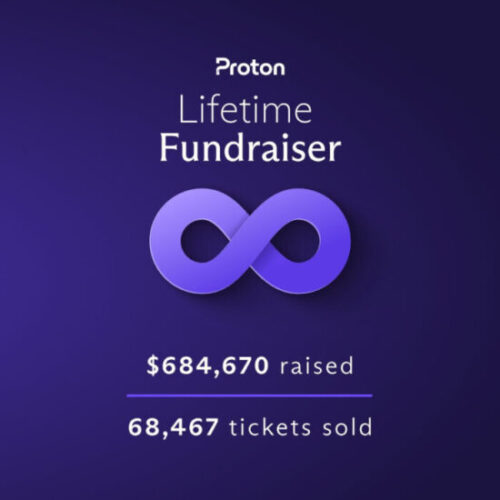
Revelations about the harms of Big Tech, from misuse of customer data to social media-fueled violence, have produced a new era of scrutiny for the sector, including stronger regulation in the EU and fines for privacy violations by giants like Amazon and Meta. Many in the investment community have also begun recognizing the downsides of surveillance capitalism.
This shift has taken place against the background of explosive growth in ESG investing, which considers environmental, social, and corporate governance factors in investment decisions. Consulting giant PwC recently estimated the volume of ESG-labeled capital at $18 trillion USD worldwide and there’s no sign of it stopping there. But, as we venture further into 2023, it is clear that ESG investing is facing increasing pressure from several directions.
In the U.S., conservative politicians have accused the ESG investing community of promoting “woke ideologies,” withdrawn investments from ESG-labeled funds, and banned state pension funds from using ESG criteria to guide their decisions. This effort to fire up conservative voters in the U.S. culminated on Monday, when Joe Biden issued the first veto of his presidency. The veto struck down a Republican bill that would have barred retirement funds from considering ESG factors in their investment decisions.
House Speaker Kevin McCarthy accused the President of favoring “woke Wall Street over workers.” But once we cut through the noise of these bad-faith arguments, there are legitimate critiques that must be addressed. Paywalled scores, disparate standards, conflicts of interest, and ratings that don’t always end up reflecting corporate impacts all limit the value of ESG data for the protection of human rights.
That’s where RDR comes in. In a new piece by Jan Rydzak, RDR’s Company and Investor Engagement Manager, we lay out the value of non-profit human rights benchmarks for the ESG community and how it can hold companies to account. In contrast with many ESG data providers, RDR uses human rights frameworks and focuses on the rights that tech and telecom titans are most likely to enable or jeopardize: freedom of expression and privacy. These are rights that rating providers often overlook within the “social” category when scrutinizing the tech world.
Meanwhile, the meteoric rise of new AI tools has helped spark investors’ interest in their promises and perils. Growing awareness of these and other risks within the responsible investment community has helped shape and accelerate RDR’s work with investors. For years, investors have drawn on our data to inform a range of shareholder proposals that pressed companies to improve their practices. Over the last two years, we’ve taken on a more proactive role, working directly with shareholders, fellow civil society groups, and the Investor Alliance for Human Rights to launch proposals in key areas.
In 2022, a proposal at Meta we helped craft called for a human rights impact assessment of its targeted advertising business model. Nearly 80% of Meta’s shareholders (besides Mark Zuckerberg) voted in favor of this proposal at the company’s annual meeting. This was one of the strongest results in Meta’s history, edged out only by two perennial proposals to abolish Zuckerberg’s near-dictatorial power over the tech giant. In 2023, the investors who led it are planning to redouble their efforts. With RDR’s support, a second team of shareholders is driving a parallel effort on ad targeting’s human rights impacts at Google, which still controls more than a quarter of the Internet’s ad revenue.
Ahead of the tech industry’s 2023 annual shareholder meetings, RDR partnered with allies to develop a proposal at Amazon calling on the e-commerce giant to report on the censorship demands it receives from governments. The proposal has already helped bring about a watershed moment for investor advocacy: This year marks the first time that Amazon’s shareholders coalesced around a common digital rights theme in their proposals—a key signal of their fast-growing awareness of these issues and the risks they pose to people and communities.
We view this growing reckoning as a chance not for cynicism, but for renewal. We will remain at the forefront of the movement that’s reshaping ESG by integrating true human rights and transparency standards, ensuring companies are held to account.
Read more about RDR’s unique value to ESG and human rights-focused investors. —>
Op-Eds From RDR Spotlight the Power of Telco Giants 
In December, we released our first-ever Telco Giants Scorecard, a ranking of the world’s most powerful telecommunications companies on their policies related to users’ fundamental rights, including freedom of expression and privacy. We argued that the effects of telcos on these rights, from mass surveillance to network shutdowns, had been too-often neglected in recent years. This was particularly true as we witnessed the rising power of, and public interest in, Big Tech.
Two op-eds we published at the end of December helped further spotlight the under-discussed power of telecom companies to trample over basic rights:
- In Thomson Reuter Foundation’s Context News, RDR’s Senior Editor Sophia Crabbe-Field published an op-ed based on our TGS findings explaining “Why telecom firms should care more about human rights.”
- For Slate, RDR’s Program Manager for the Corporate Accountability Index, Veszna Wessenauer, examined “The Tech Companies That Wield Even More Power Than Facebook or Google” by investigating, among other cases, the troubling sale of Vodafone in her home country, Hungary, to the government of authoritarian leader Viktor Orbán.
Sports and Surveillance After the Qatar World Cup

Late last year, RDR teamed up with pan-Arab digital rights organization Social Media Exchange (SMEX) to release “Red Card on Digital Rights,” a three-part series investigating the state of the internet and digital surveillance in Qatar as it hosted the 2022 FIFA World Cup.
During the games, we found opaque and worrisome policies for the country’s mandatory Hayya app that jeopardized the data of World Cup visitors, alongside massive surveillance, with the presence of 15,000 cameras across eight stadiums.
This month, we released part three of the series, looking at the dangerous precedents set in Qatar, the massive surveillance plans already underway for the 2024 Paris Olympics, and how future host countries can balance safety considerations with a rights-respecting framework.
Looking to the Future, with Help from Proton
 2022 was a big year for RDR: We released our first-ever Big Tech and Telco Giants Scorecards in 2022. Also in 2022, RDR was selected by the Proton Mail Community as one of 10 recipients of their 2022 Lifetime Account Fundraiser raffle, alongside fantastic allied orgs like Access Now and Fight for the Future.
2022 was a big year for RDR: We released our first-ever Big Tech and Telco Giants Scorecards in 2022. Also in 2022, RDR was selected by the Proton Mail Community as one of 10 recipients of their 2022 Lifetime Account Fundraiser raffle, alongside fantastic allied orgs like Access Now and Fight for the Future.
We’re happy to say that Proton beat last year’s fundraiser, selling 68,000 raffle tickets and raising over $684,000, a portion of which will support RDR’s activities in 2023.
Thanks to this generous support, RDR is jumping into 2023 with the goal of ensuring our standards become increasingly accessible to anyone who might be able to use them to yield better human rights results in the tech sector, including policymakers, investors, companies, journalists, and civil society. But we’re focused on two groups in particular:
- Civil society organizations around the globe, particularly in the majority world, and
- Responsible investors, who use RDR’s standards as an important touchstone in their decision-making.
Working alongside both of these groups, we aim to ensure that 2023 is a memorable year for holding the tech industry accountable for protecting our rights online and off.
Read more about the Proton raffle and our goals for 2023 →
RDR Media Hits
Fast Company:Jan Rydzak discussed the drastic decline in transparency reporting from Twitter under Elon Musk’s leadership: “Musk strip-mined the core structures responsible for protecting human rights at Twitter and concentrated all decision-making power in himself, severing ties with the human rights community entirely.”
American Geographical Society: The American Geographical Society interviewed RDR Director Jessica Dheere and Research Manager Zak Rogoff for a piece on their Ubique blog on how companies use personal information like location data.
Upcoming Events
Mozilla Festival 2023
MozFest 2023 will take place online from March 20-24.
RightsCon 2023
RightsCon will take place online and in person in Costa Rica from June 5-8, 2023. Buy a ticket now with early bird deals or plan to attend online and hear from the RDR team and digital rights experts around the world!
And, World Press Freedom Day is May 3, 2023!
Support Ranking Digital Rights!
If you’re reading this, you probably know all too well how tech companies wield unprecedented power in the digital age. RDR helps hold them accountable for their obligations to protect and respect their users’ rights.
As a nonprofit initiative that receives no corporate funding, we need your support. Do your part to help keep tech power in check and make a donation. Thank you!





